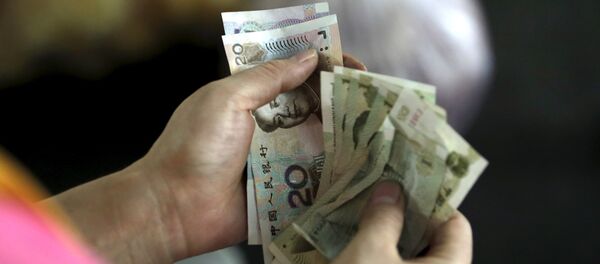MOSCOW (Sputnik) — The yuan is set to officially become a reserve currency since October 2016. The Chinese currency is expected to contribute to the value of the special drawing right — a weighted average of the currencies — which the IMF uses to price its emergency loans.
China has lobbied for the currency to be included in the IMF list, which at present is made up of the US dollar, the euro, the British pound sterling and the Japanese yen. The list has not been altered since 2000, when the euro replaced the French franc and the German Deutschmark.
According to Egor Susin, the chief expert for the Center for Economic Forecasting at Gazprombank, the IMF decision was anticipated by the market.
"This decision is correct, as the Chinese economy and the Chinese currency has long been complying with the requirements that apply to the reserve currency," he told Sputnik adding that the yuan held the fifth place in terms of volume of payments which were expected to grow further.
Susin added that China had been lobbying this decision since "it will strengthen China's position in the world markets and will reduce the risks that are associated with changes in the policy of the US Federal Reserve and other central banks" and increases Chinese influence in the world.
"Given the development of the Chinese economy, the United States could not oppose the inclusion of the RMB in SDR [special drawing rights] basket," Mingtai Fan told Sputnik explaining why IMF where Washington had the largest quota and voting power made such a decision.
Mingtai Fan added that, besides, the United States was interested in further strengthening of economic cooperation with China while yuan's inclusion in the basket of reserve currencies represents an important step towards the internationalization of the Chinese currency.
The weight of the Chinese yuan in the reviewed basket of currencies will be 10.92 percent, while the share of the US dollar will remain 41.73 percent, the IMF said Tuesday.




